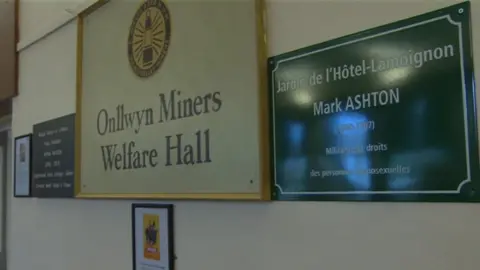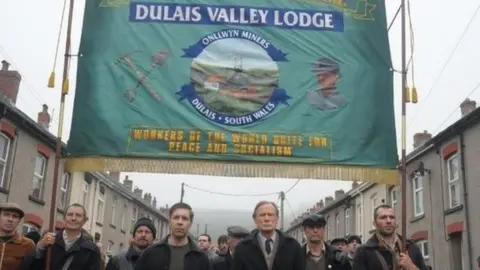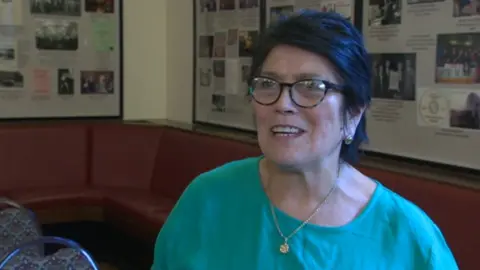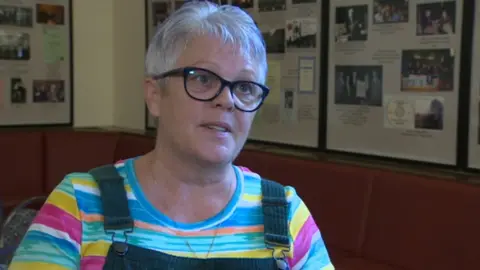Pride: Dulais miners' strike film inspirations honoured
 Publicity
PublicityTwo miners' strike activists who helped inspire a Bafta-winning film have been honoured in their local community.
Mark Ashton was a leading figure in the Lesbians and Gays Support the Miners (LGSM) group during the strike in 1984.
Hefina Headon was secretary of the Miners Support Group in the Dulais Valley, south Wales.
Their lives were among those portrayed in the 2014 film Pride and have been remembered with plaques at Onllwyn Welfare Hall.
Members of the LGSM group attended a ceremony following the Swansea Pride march earlier on Saturday.

Mr Ashton helped form the group which raised money to provide food and support for striking miners and their families. He died in 1987 aged 26.
His friend and former Swansea East MP Sian James said he was a "great character" who "brought people together".
"He was a unifier, not a divider. I have no doubt that if he had lived (longer) he would have achieved great things," she said.
"It took somebody really brave like Mark to actually say we need to do something."
She added: "To actually get that bucket out and get collecting on Gay Pride wasn't an easy thing 35 years ago [when] LGBTQ+ rights were unheard of.
"We like to think that every gay person should look at this as their place of culture and they are very welcome here.
"Our community [was] ahead of the curve in a way. We didn't think we were changing history. We were just being decent human beings."
 Publicity
Publicity
Onllwyn Welfare Hall was the centre of community life during the strike and headquarters of the Neath Dulais and Swansea Valley Miners support group.
More than 4,000 people were fed and £350,000 was raised during the strike.
It became the inspiration to the drama Pride, also starring Andrew Scott and Dominic West, that scooped the outstanding debut award at the Bafta Film Awards.
Hefina Headon, portrayed by Imelda Staunton, died shortly before filming began in 2013.

Her daughter Allison Williams says she is proud of her mother's contribution and cried when she first saw the plaque.
"It's very emotional. I never thought this day would come because she didn't do these things for praise or accolade," she said.
"She was totally absorbed by the strike. It was her aim in life to help others and she brought us up to believe in those things as well.
"She was a miner's wife and a miner's daughter so we've lived those times, not just one generation but a number of generations."
